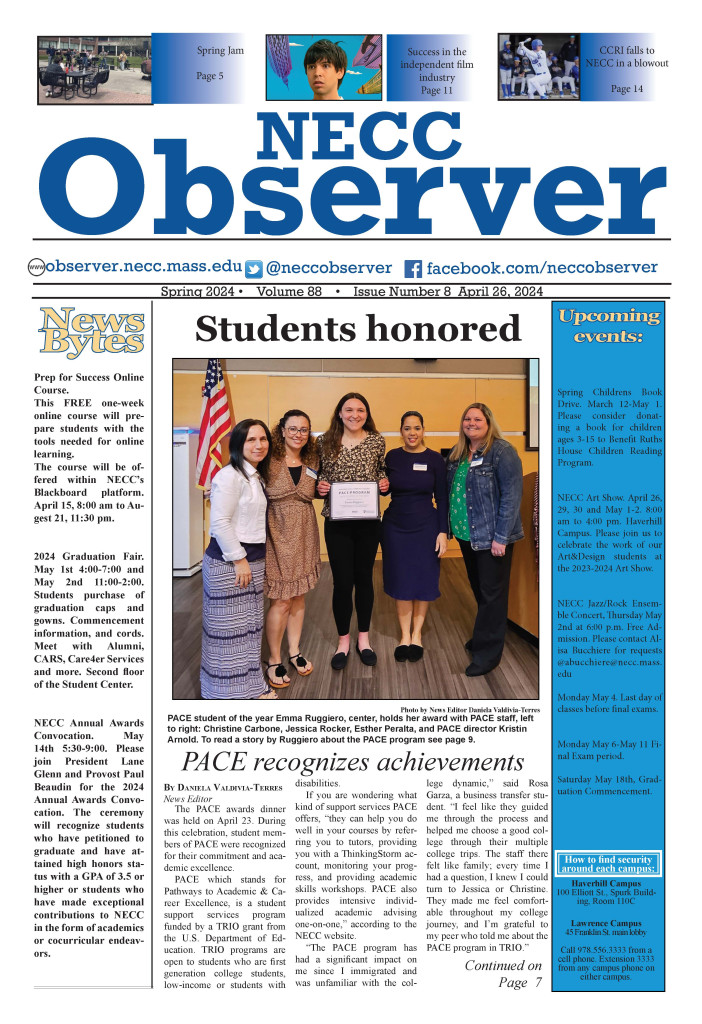What Jussie Smollett’s staged attack means for victims
When Jussie Smollett filed a police report claiming that two masked attackers wrapped a rope around his neck, poured a substance (possibly bleach) and screamed “MAGA country” at him early morning Jan. 29, the country immediately went into a firestorm. People of all walks of life, including celebrities, political figures, and anyone with social media chimed in, wondering how something like this could happen? It also overwhelmingly reiterated a point that many people feel today, being that if you wear a MAGA hat or support President Trump, you are inherently a racist, and this attack only proves it. But then something interesting happened, the story kept changing, new evidence kept coming out that was leading police to believe that Smollett staged the attack himself in an effort to advance his career, and increase his salary.
[pullquote]
Victim shaming for so many of these acts (rape, hate crimes, etc) is a real thing.
– Haley Abernathy
[/pullquote]
It was a shock to many, and left people reeling, wondering again, how could something like this happen? Smollett, can face one to three years prison time for filing a false report. While this case brought up a lot of racially charged issues and topics on the forefront, it left me wondering, what kind of effect does this have on false accusation stigmas? In American culture, particularly rape culture and sexual assault allegations there is already a pretense to not believe the victims. Despite the fact that false reporting on sexual assault on the national level falls somewhere between two percent and ten percent according to the National Sexual Violence Resource Center, often times when a woman comes forward the first response is that she is a liar.
Looking at high profile cases like Anita Hill and Supreme Court Nominee Clarence Thomas, where Hill accused Thomas of sexual misconduct, the polls found that far more people believed Thomas than Hill. According to a 1991 poll conducted by NBC/Wall Street Journal, 40 percent believed Thomas compared to 24 percent believing Hill. Looking at the Supreme Court Judge Nominee Brett Kavanaugh sexual assault allegations made by professor Christine Blasey Ford, it left the country even more divided.
According to an NPR/PBS NewsHour/Marist poll they found that about a third (32 percent) believe Ford, about a quarter (26 percent) believe Kavanaugh and 42 percent were unsure who to believe. While more Americans believed Ford than Kavanaugh, overwhelmingly it seemed that people were unsure of what to believe. Jussie Smollett does not help in cases like these where victims come forward, and it seems you are not sure who or what to believe.
It should be noted that in both cases, Thomas and Kavanaugh were confirmed into the Supreme court despite the allegations. We are currently in the era of the #MeToo movement, but how helpful has this movement really been for both women and men? A 2018 study done by Pew Research found that the increased focus on sexual harassment has made 51 percent of American men feel that it is harder for them to interact with women in the workplace. Americans see little upside for women’s workplace opportunities as a result of the increased focus on sexual harassment and assault. Just 28 percent say it will lead to more opportunities for women in the workplace in the long run, 20 percent say it will lead to fewer opportunities and 51 percent say it won’t make much of a difference.
Despite these feelings in the workplace, the #MeToo movement was a way for women who were victims of sexual assault to band together, and shed a light that it is ok to discuss sexual assault.
Oftentimes victims of sexual assault (women and men) do not come forward immediately after the assault. This confuses many people, because when they do come forward, often in high profile cases, people will begin to question their motives. For fact checking’s sake here is a small list of just some of the many reasons why sexual assault does not go reported according to the National Institute of Justice. Self-blame or guilt. Shame, embarrassment, or desire to keep the assault a private matter. Humiliation or fear of the perpetrator or other individual’s perceptions. Fear of not being believed or of being accused of playing a role in the crime. Lack of trust in the criminal justice system.
While it is very disheartening that a lot of these crimes go unreported, it is much sadder that when a woman or man shows strength and decides to come forward that they are almost immediately questioned, or not believed. Which brings us back to the beginning, Jussie Smollett’s false police report only strengthens this narrative of a false pretense in sexual assault allegations.
NECC student and Lab Science major Haley Abernathy thinks that “it absolutely takes away from people who are involved in serious hate crimes. “Victim shaming for so many of these acts (rape, hate crimes, etc) is a real thing, and I think it’s so prevalent because people don’t want to believe that their or anyone else’s morals and their views on things are wrong and honestly, outdated. “People want to be ignorant and blind to the hate that goes on in our communities because they think that just because it’s 2019 nobody is racist, or sexist, or homophobic, or just downright a bad person who makes bad decisions. The fact that he could orchestrate this entire ordeal is disgusting. It absolutely takes away from real hate crimes. No question about it.”

